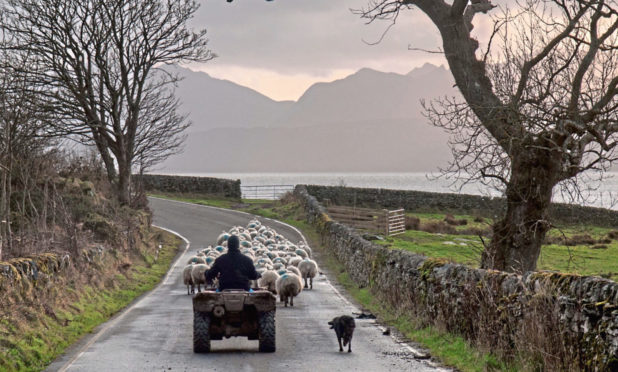Farmers considering a move to transfer ownership of their business to the next generation have been told to act sooner rather than later ahead of anticipated changes to the tax regime.
Agricultural lawyer Grierson Dunlop, who is land and property partner at Turcan Connell, made the comments at The Press and Journal’s virtual Farming Breakfast.
The event – entitled What Lies Ahead? – was organised in association with Turcan Connell, with support from north-east farmers’ co-operative ANM Group and the Royal Bank of Scotland.
Mr Dunlop said impending changes to the tax regime as a result of increased government spending during the coronavirus pandemic would affect farmers.
“I do believe now, more than ever, there is a justification to review all of your affairs right now in light of the inevitable taxation changes which will follow given the economic black hole that beckons,” said Mr Dunlop.
“If you are looking at transferring a business or asset then you should consider whether that process should be accelerated now given the potential for tax rises.
“It’s hard to see how the government’s borrowing can be addressed in any other way.”
Meanwhile, Aberdeen and Northern Marts (ANM) deputy head of livestock, Colin Slessor, praised the efforts of the auctioneering sector to keep trade flowing during the pandemic.
He said the ANM team had put in a “herculean effort” to ensure sales could continue and the introduction of an online sales platform had resulted in hundreds of cattle and thousands of sheep being traded online every week.
Looking more closely at trade, Mr Slessor said prime cattle prices were up around £100 a head on last year and all classes of sheep, including breeding sheep, were up 21%.
He said a Brexit deal was vital, especially for the lamb sector, and added: “Around 65% of lamb can be exported and tariffs on there would have a very detrimental effect.”
James Presly, a director at Aberdeen and Northern Estates Limited, said the land market was paused during the national lockdown earlier this year, but trade had resumed.
He said: “Bare arable land remains in the highest demand.
“While we have yet to see it become a significant factor across the north-east, we have seen instances elsewhere of those with forestry investment intentions look to more marginal agricultural land to harness new planting grounds.
“This could set a floor on this class of land in the future and shore up demand for lower quality farmland.”
Lastly, Royal Bank of Scotland’s director of agriculture, Roddy McLean, said farmers needed to cash in on the drive to buy local food and drink during the pandemic.
He said: “This is an opportunity that we need to build on – engage with customers and deepen the relationship, tell our story in a positive and informative way.
“We have been provided with an opportunity by the pandemic that we need to grasp now.
“If we get into next spring and later on next year when there are redundancies and recession, consumers all too easily might change their buying habits and we will find ourselves on the back foot again.”
A full recording of the event is available to view online at pandjbreakfast.co.uk










